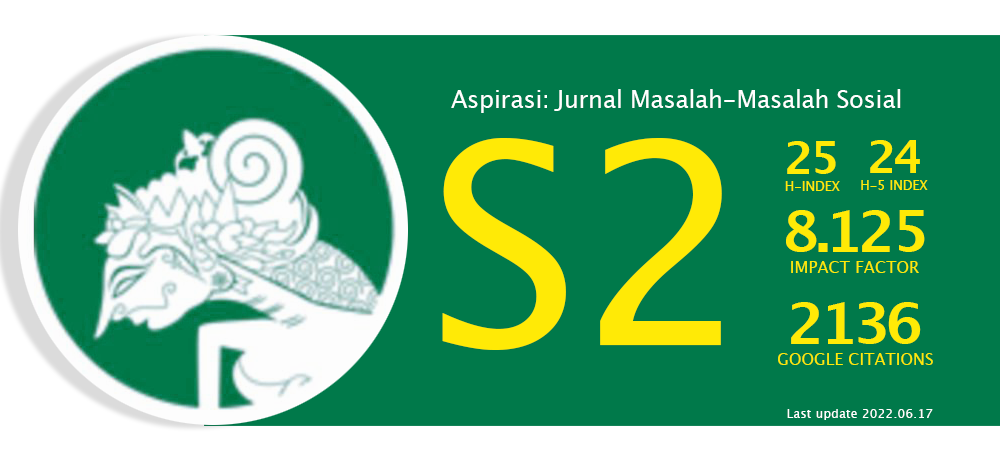GAMBARAN MANFAAT PROGRAM FAMILY DEVELOPMENT SESSION KEMENTERIAN SOSIAL REPUBLIK INDONESIA
Abstract
Keywords
References
Buku
Ahmad, H. 2008. Ensiklopedi Pendidikan Anak Muslim. Yogyakarta: Hidayatullah.Fikr.
Berndt, T. J. 1997. Child Development. (second edition). Purdue University: Brown & Benchmark. United States of America by Times Mirror Higher Education Group, Inc.
Berns, R. M. 2003. Child, Family, School, Community Socialization and Support (sixth edition). University of California. Irvine Saddleback College: Emertius.
Direktorat Jederal Rehabilitasi Sosial. 2011. Pedoman Satuan Bakti Pekerja Sosial Perlindungan Anak (SAKTI PEKSOS PA) Program Kesejahteraan Sosial Anak (PKSA). Jakarta: Kementerian Sosial RI.
Faisal, S. 2007. Format-format Penelitian Sosial. Jakarta: PT Raja Grafindo Persada.
Gunarsa, Singgih D. 2007. Psikologi Remaja. Jakarta:Gunung Mulia.
Hurlock, Elizabeth. 1978. Perkembangan Anak Jilid II, terjemah oleh Mitasari Tjandrasa. Jakarta: Erlangga.
Kementerian Sosial RI. 2014. Peraturan Menteri Sosial Republik Indonesia No. 21 Tahun 2013 tentang Pengasuhan Anak. Jakarta: Kementerian Sosial RI.
Myers, DG. 1996. Social Psychology (5th ed.). New York : McGraw-Hill.
Nofianingrum, Efa. 2013. Skripsi: Pola Pengasuhan Keluarga Anak Jalanan Sebagai Penyebab Perilaku Menyimpang Anak Jalanan (Studi Kasus Anak Jalanan di Terminal Mojoagung Kabupaten Jombang). Jombang: STKIP PGRI Jombang.
Santrock, Jhon. 2002. Perkembangan Masa Hidup, Edisi Ke-5, Jilid 1. Jakarta: Erlangga.
Subroto, Hadi. 1997. Mengembangkan Kepribadian Anak Balita. Jakarta: Gunung Mulia.
Thoha, Chabib. 1996. Kapita Selekta Pendidikan Islam. Yogyakarta: Pustaka Pelajar Offset.
Jurnal
Jannah, Husnatul. 2013. “Bentuk Pola Asuh Orang Tua dalam Menanamkan Perilaku Moral Pada Anak Usia Dini Di Kabupaten Ampek.” Jurnal PAUD, Vol. I No.I. Padang: Pesona Universitas Negeri Padang.
Internet
“Penyekapan Anak, ini Kisah yang Mereka yang Pernahke Panti Milik Samuel: http://m.bisnis.com/quicknews/read/ 20140226/16/206136/ penye-kapananak-ini-kisah-mereka-yang-pernah-ke-pantimilik-samuel, diakses tanggal 24 September 2014.
“Program Kesejahteraan Sosial Anak PKSA.” http://kapanjadibeda. word press.com/programkesejahteraan-sosial-anak-pksa, diakses tanggal 25 September 2014.
“What is Child Protection?”, http://www.unicef.org/protection/files/What_is_Child_Protection.pdf, diakses tanggal 24 September 2014.
DOI: https://doi.org/10.46807/aspirasi.v6i1.468
Refbacks
- There are currently no refbacks.







